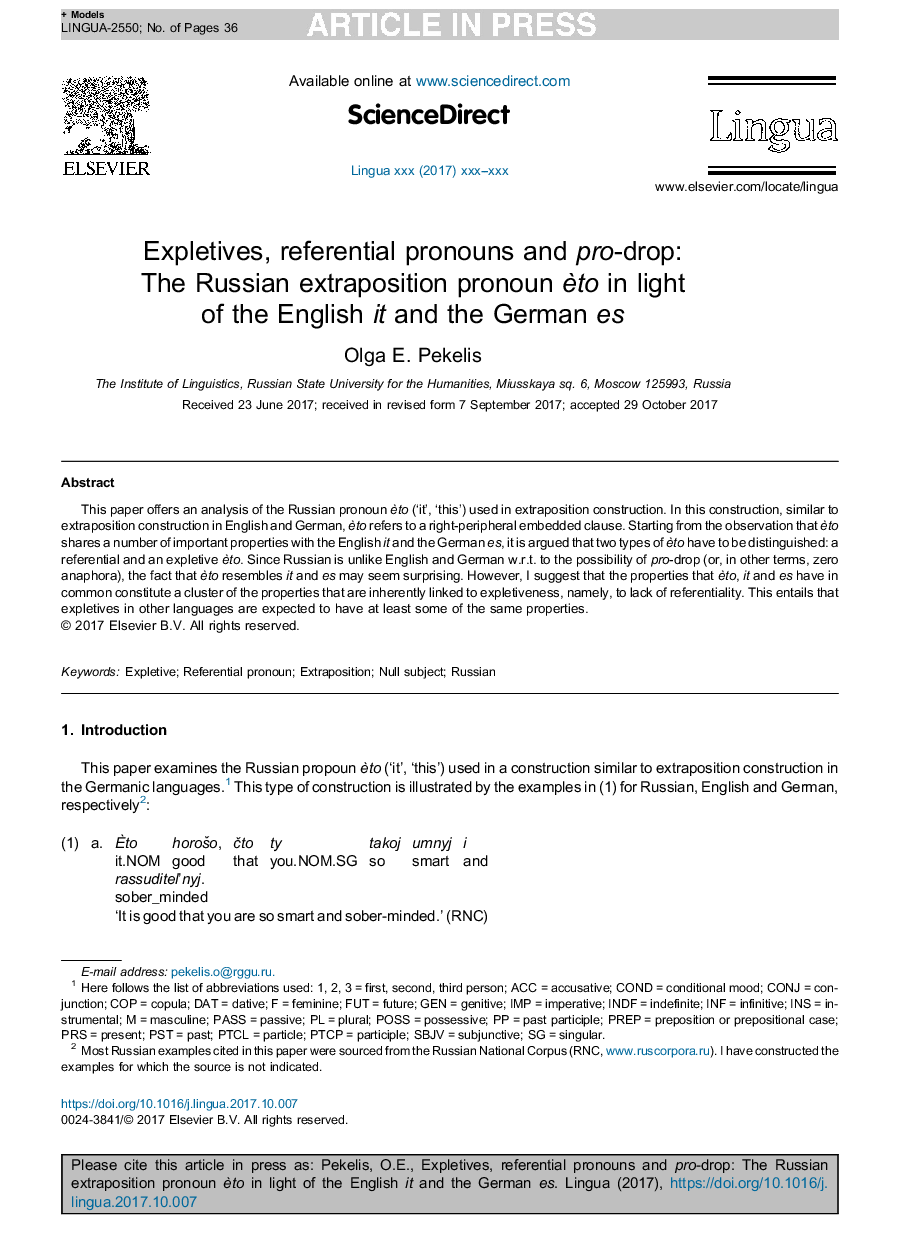| Article ID | Journal | Published Year | Pages | File Type |
|---|---|---|---|---|
| 7298420 | Lingua | 2018 | 36 Pages |
Abstract
This paper offers an analysis of the Russian pronoun èto ('it', 'this') used in extraposition construction. In this construction, similar to extraposition construction in English and German, èto refers to a right-peripheral embedded clause. Starting from the observation that èto shares a number of important properties with the English it and the German es, it is argued that two types of èto have to be distinguished: a referential and an expletive èto. Since Russian is unlike English and German w.r.t. to the possibility of pro-drop (or, in other terms, zero anaphora), the fact that èto resembles it and es may seem surprising. However, I suggest that the properties that èto, it and es have in common constitute a cluster of the properties that are inherently linked to expletiveness, namely, to lack of referentiality. This entails that expletives in other languages are expected to have at least some of the same properties.
Keywords
Related Topics
Social Sciences and Humanities
Arts and Humanities
Language and Linguistics
Authors
Olga E. Pekelis,
